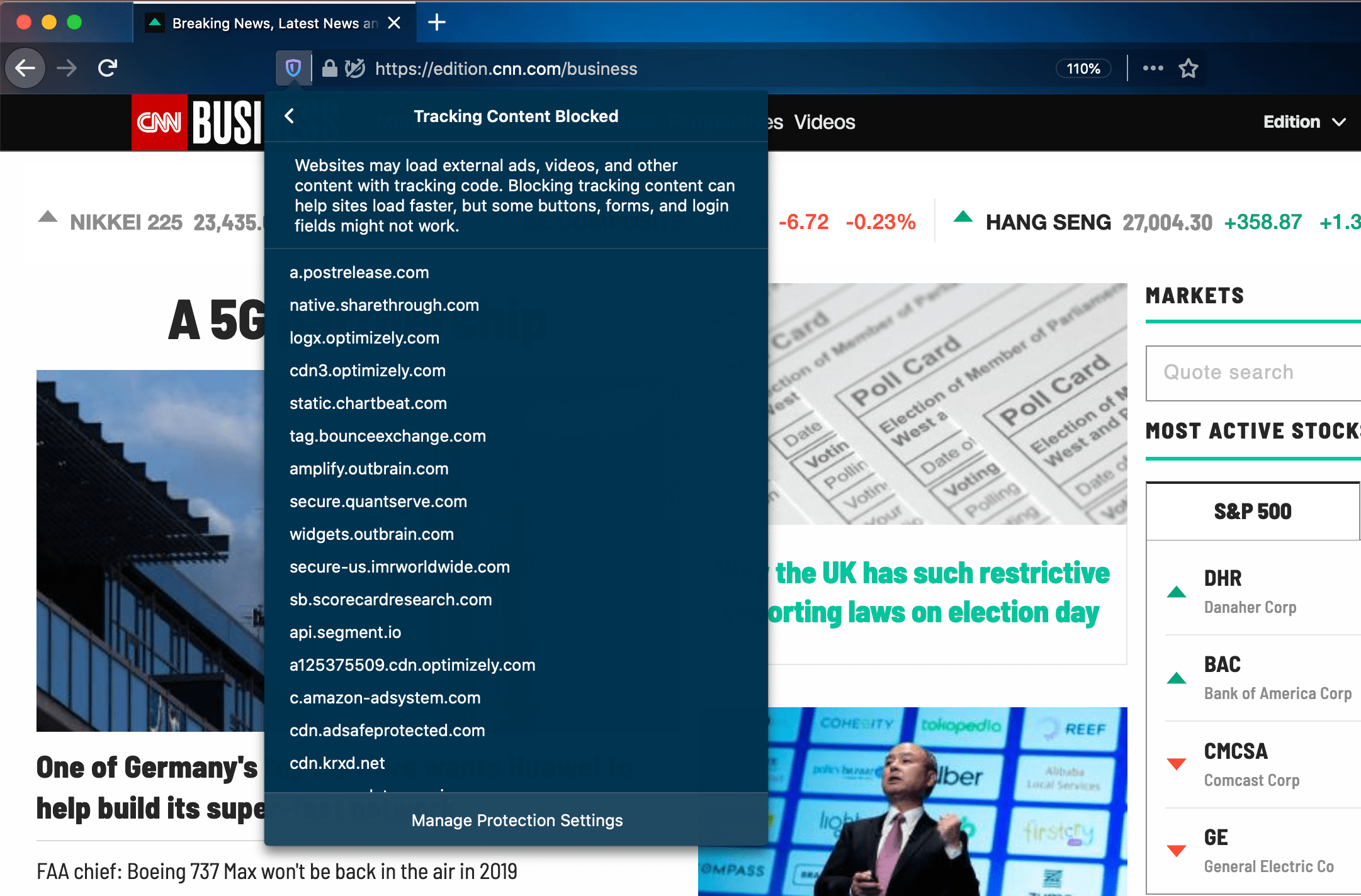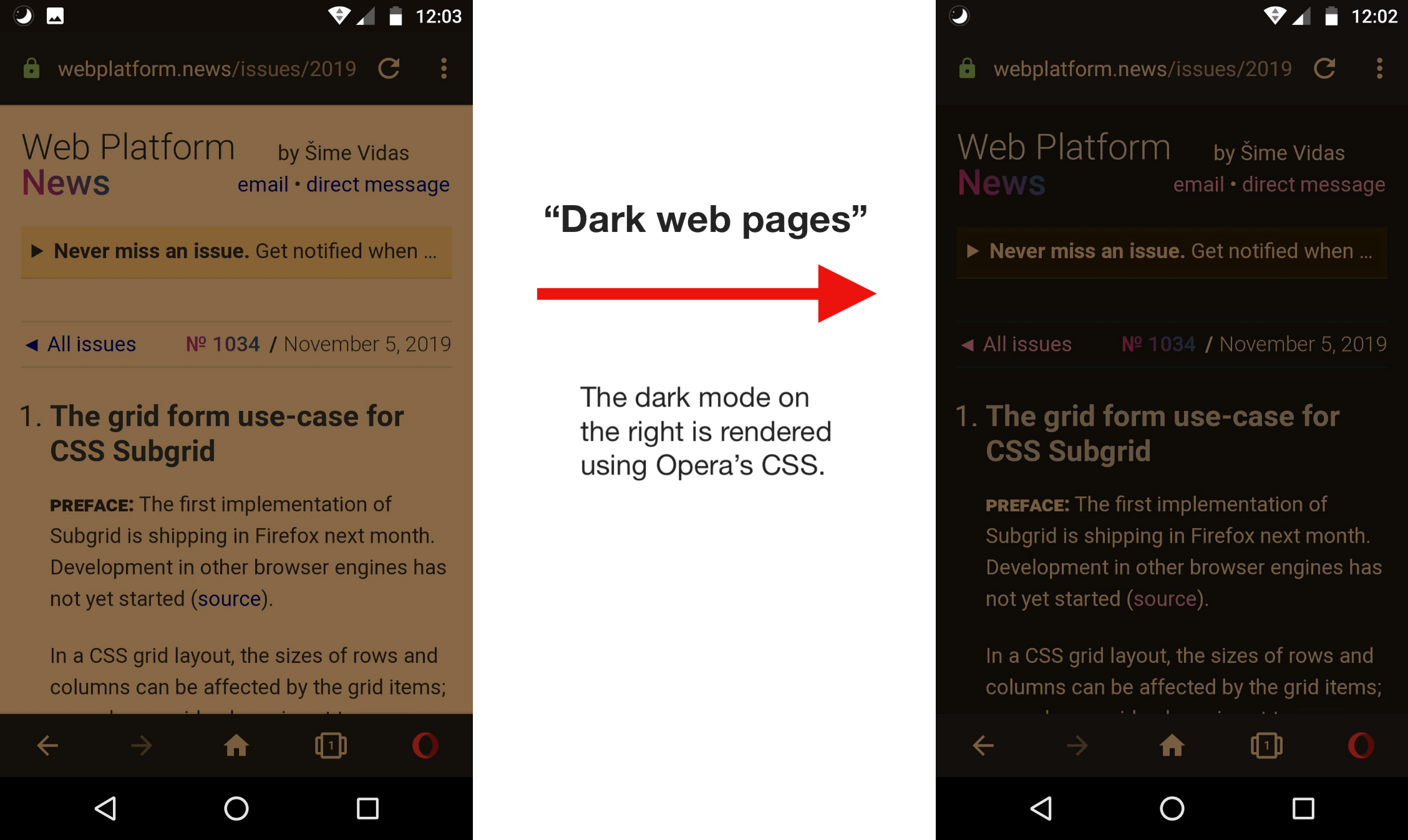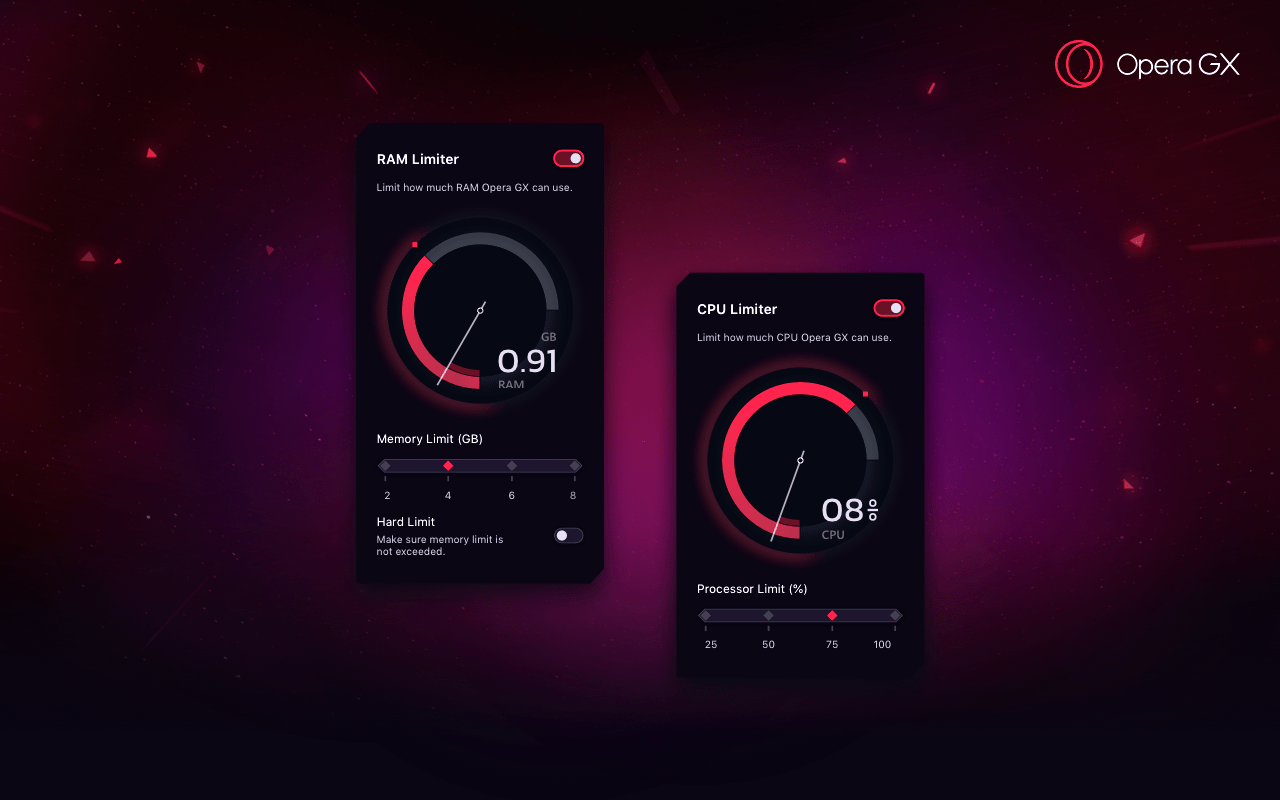In this week's news: Firefox gets strict, Opera goes to the dark side, and Chrome plans to let web apps run in the background.
Let's get into the news.
Firefox for Android will block tracking content
Mozilla has announced that the upcoming revamped Firefox for Android (currently available in a test version under the name "Firefox Preview") will include strict tracking protection by default.
On the phone or tablet, most users care much more about performance and blocking of annoyances compared to desktop. Users are more forgiving when a site doesn’t load exactly like it’s meant to. So we decided that while Firefox for desktop’s default mode is "Standard," Firefox Preview will use "Strict" mode.
Strict tracking protection additionally blocks "tracking content": ads, videos, and other content with tracking code.

(via Mozilla)
Opera adds option that renders all websites in dark mode
Opera for Android has added a "Dark web pages" option that renders all websites in dark mode. If a website does not provide dark mode styles (via the CSS prefers-color-scheme media feature), Opera applies its own "clever CSS changes" to render the site in dark mode regardless.

(via Stefan Stjernelund)
Periodic Background Sync is coming to Chrome
Google intends to ship Periodic Background Sync in the next version of Chrome (early next year). This feature will enable installed web apps to run background tasks at periodic intervals with network connectivity.
Chrome’s implementation restricts the API to installed web apps. Chrome grants the permission on behalf of the user for any installed web app. The API is not available outside of installed PWAs.
Apple and Mozilla are currently opposed to this API. At Mozilla, there are opinions that the feature is "harmful in its current state," while Apple states multiple privacy and security risks.
(via Mugdha Lakhani)
More news...

Read more news in my weekly newsletter for web developers. Pledge as little as $2 per month to get the latest news from me via email every Monday.
The post Weekly Platform News: Strict Tracking Protection, Dark Web Pages, Periodic Background Sync appeared first on CSS-Tricks.



